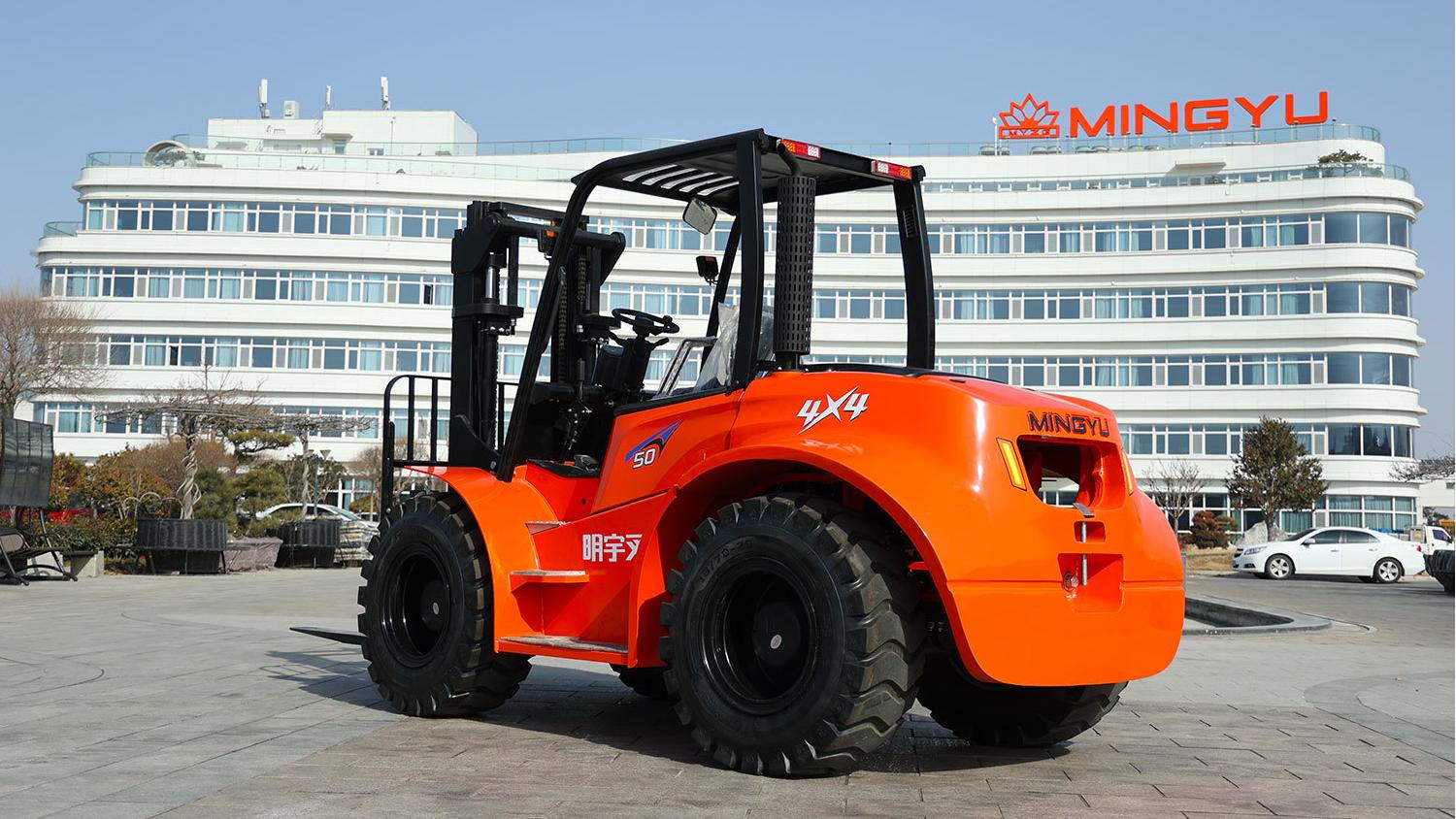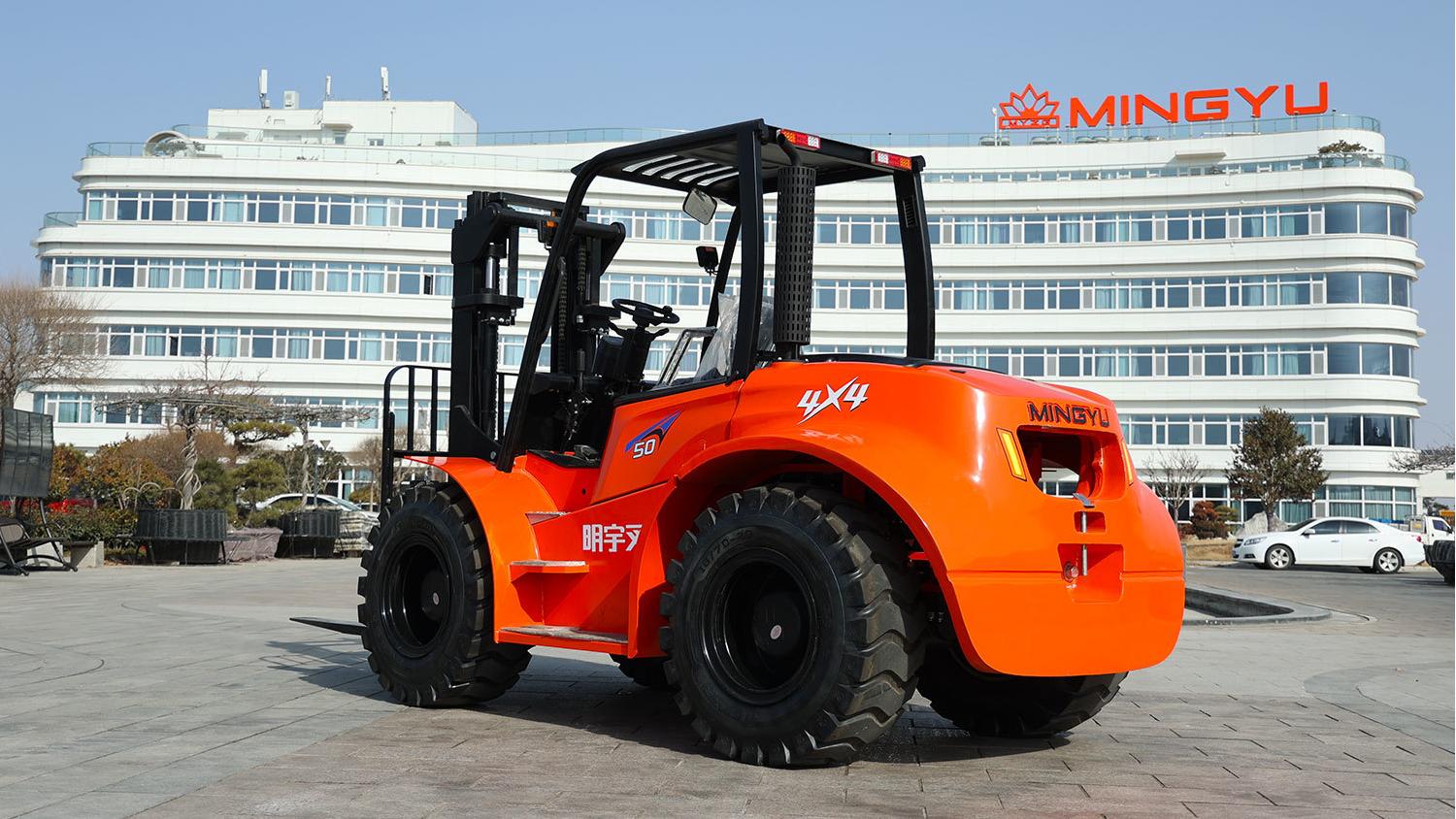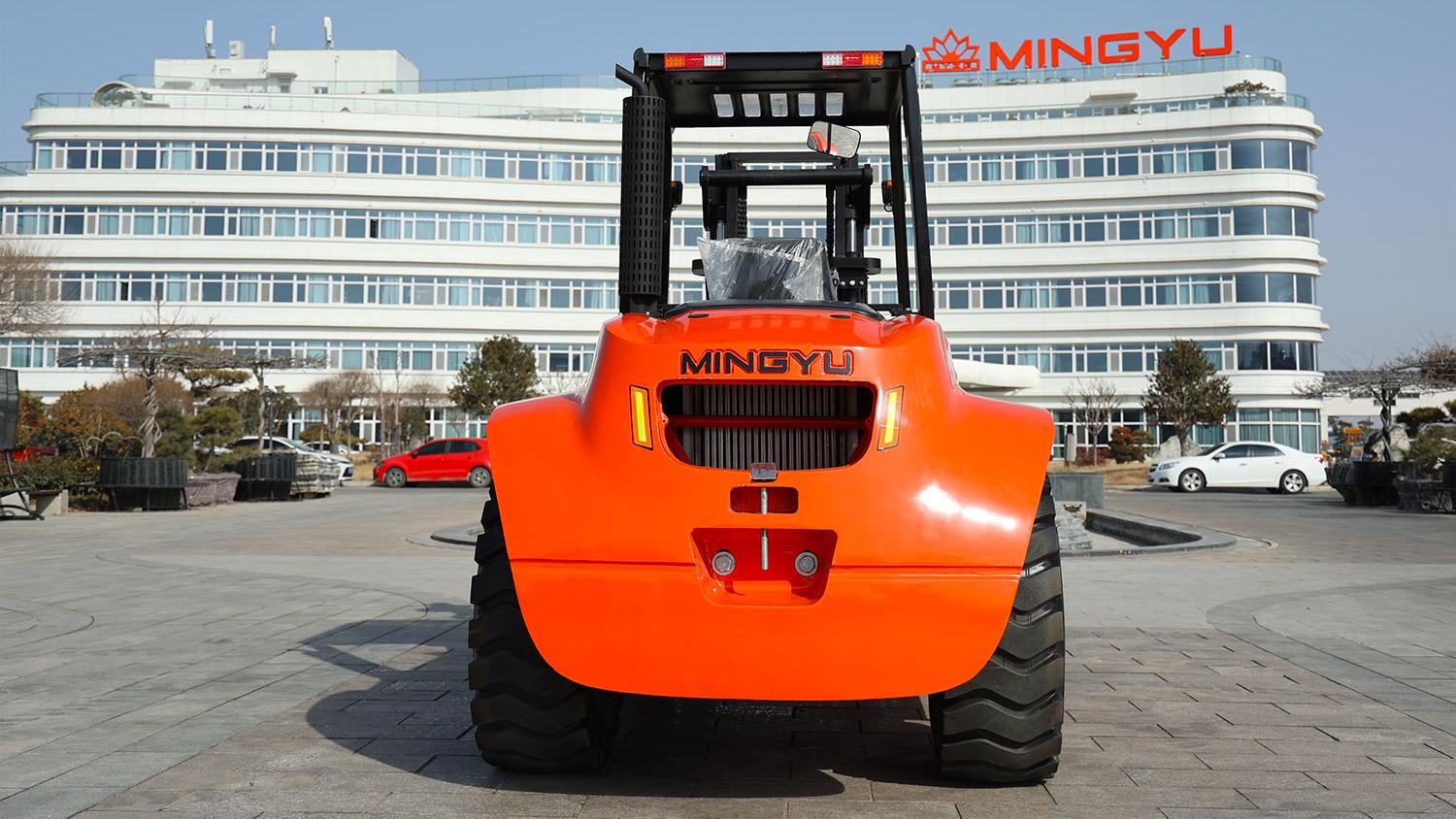Can Off-Road Forklifts Be Rented and What Are the Rental Rates?
1. Introduction
In industries like construction, agriculture, and material handling, off-road forklifts play a crucial role in moving heavy loads across rough and uneven terrain. These specialized machines are built to perform in conditions where standard forklifts would fail. But not every business needs to own an off-road forklift. Many wonder: Can off-road forklifts be rented, and what do they cost?
This article provides a detailed guide on renting off-road forklifts, the rental rates you can expect, and key factors to consider before making a decision.
2. What is an Off-Road Forklift?
An off-road forklift, also known as a rough terrain forklift, is designed specifically for use on uneven, soft, or challenging surfaces where traditional forklifts cannot operate effectively. These machines feature:
Large, heavy-duty pneumatic tires
Enhanced ground clearance
Powerful engines
Sturdy frames for stability
Common applications include construction sites, agricultural fields, lumberyards, outdoor events, and disaster recovery efforts.
Types of Off-Road Forklifts:
Vertical Mast Rough Terrain Forklifts
Telehandlers (Telescopic Handlers)
All-Terrain Forklifts
3. Advantages of Renting an Off-Road Forklift
Renting offers several benefits over purchasing:
Cost Efficiency: No large upfront investment required.
Flexibility: Ideal for short-term or seasonal projects.
Access to New Technology: Rental fleets often include the latest models.
Lower Maintenance Costs: The rental company handles most maintenance and repairs.
No Storage Worries: You only have the equipment when you need it.
4. Situations When Renting is the Best Option
Renting is ideal when:
The project is temporary or short-term.
The company is testing a new type of equipment before purchasing.
There's an unexpected breakdown of owned equipment.
The job is in a remote location or requires specialized machines.
For companies that don't frequently need an off-road forklift, renting eliminates the burden of ownership while still providing the equipment when required.
5. Can Off-Road Forklifts Be Rented?
Yes, off-road forklifts are widely available for rent from both local and national equipment rental providers. Major rental companies include:
United Rentals
Sunbelt Rentals
Herc Rentals
Home Depot Rental Services
Rental is available for:
Daily
Weekly
Monthly periods
This availability gives businesses flexibility based on the project duration and budget.
6. What Types of Off-Road Forklifts Are Available for Rent?
A variety of models can be rented, including:
Small Rough Terrain Forklifts: Typically 2,000 to 5,000 lbs capacity.
Mid-Sized Telehandlers: 5,000 to 10,000 lbs capacity with various boom lengths.
Heavy-Duty Telehandlers: 12,000+ lbs capacity for industrial or mining use.
Optional Attachments:
Fork extensions
Buckets
Jibs
Man baskets
Selecting the right type ensures both efficiency and safety.
7. What Are the Typical Rental Rates for Off-Road Forklifts?
Rental costs depend on several factors. Typical price ranges:
|
Type of Forklift |
Daily Rate |
Weekly Rate |
Monthly Rate |
|
Small Rough Terrain Forklift |
$150–$300 |
$700–$1,200 |
$2,000–$3,500 |
|
Medium Telehandler (5,000–10,000 lbs) |
$250–$500 |
$1,000–$2,000 |
$3,000–$5,000 |
|
Large Telehandler (12,000+ lbs) |
$500–$800 |
$2,000–$3,500 |
$5,000–$9,000 |
Costs may also vary by region, rental company, and availability.
8. Key Factors That Affect Rental Costs
Rental rates are influenced by:
Machine Size & Capacity: Larger models cost more.
Brand & Model: Premium brands may have higher rates.
Attachments Required: Each additional tool adds cost.
Rental Duration: Longer rentals often come with discounts.
Location: Urban vs. rural pricing differences.
Delivery & Pickup: Transportation costs can be significant.
Insurance: Some rentals require damage waivers or liability coverage.
9. Additional Costs and Considerations
Be aware of extra charges:
Fuel and Refueling Fees
Cleaning Fees
Late Return Penalties
Standby Fees: Charged if the equipment sits unused.
Operator Costs: If you need a certified driver.
Review rental agreements carefully to avoid unexpected expenses.
10. Renting vs. Buying: Cost Comparison
Key considerations:
|
Factor |
Renting |
Buying |
|
Initial Cost |
Low |
High |
|
Maintenance |
Included |
Owner's responsibility |
|
Flexibility |
High |
Limited |
|
Depreciation |
No |
Yes |
|
Tax Deductions |
Short-term benefits |
Long-term asset depreciation |
Renting is better for occasional use, while buying suits frequent, long-term use.
11. How to Rent an Off-Road Forklift
Steps to follow:
Assess Needs: Weight, height, terrain, frequency.
Get Multiple Quotes: Compare rates and availability.
Inspect Equipment: Ensure proper maintenance.
Review Contracts: Check for hidden fees.
Schedule Delivery: Plan for site access and timing.
Always check the forklift’s safety certification and operator qualifications.
12. Safety Considerations When Renting
Operators must be properly trained and certified.
Ensure load capacity is not exceeded.
Conduct pre-operation inspections.
Be cautious of ground stability and slope.
Use proper attachments for the task.
Safety violations can lead to accidents and increased costs.
13. Technological Innovations in Off-Road Forklifts
Modern features:
Load Monitoring Systems
Telematics for Fleet Management
Hybrid or Electric Models
Enhanced Stability Controls
New technology improves safety, efficiency, and environmental impact.
14. Conclusion
Off-road forklifts can indeed be rented, offering businesses a cost-effective, flexible solution for their lifting needs on rough terrain. By understanding rental rates, additional costs, and safety considerations, companies can make informed decisions that balance productivity, budget, and safety.
Post time:Jul.04.2025



